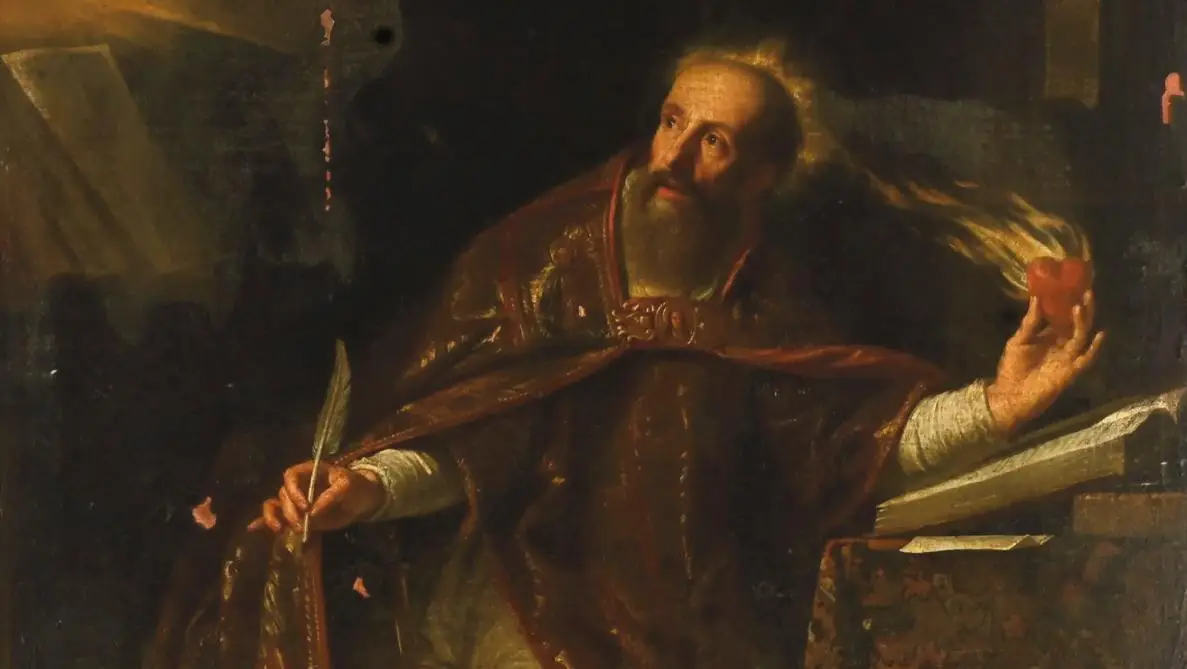For this reason I bow my knees before the Father, 15 from whom every family in heaven and on earth is named, that according to the riches of his glory he may grant you to be strengthened with power through his Spirit in your inner being, so that Christ may dwell in your hearts through faith—that you, being rooted and grounded in love, may have strength to comprehend with all the saints what is the breadth and length and height and depth, and to know the love of Christ that surpasses knowledge, that you may be filled with all the fullness of God.
Now to him who is able to do far more abundantly than all that we ask or think, according to the power at work within us, to him be glory in the church and in Christ Jesus throughout all generations, forever and ever. Amen.
The Father deserves all of the glory for what He has accomplished in Christ and the Church. He deserves all of the glory because his love surpasses knowledge. We will worship him forever because he has united Jew and Gentile into one family of Christ. And he is worthy of all praise because Christ and the Spirit now dwell in us through faith. God the Father is worthy of all glory in the church and in Christ Jesus because his love is boundless, he has united the church with one common bond of love, and because the Son and the Spirit now indwell us by faith.
Ephesians 3:14 introduces one of Paul’s many prayers that he offers for the church in the New Testament. This prayer in particular is an intercessory prayer, directed to the Father to whom belongs the glory. But before Paul gets to the prayer, he wants to really make sure we understand something that he calls “the mystery of his will.” In another place he calls it “the mystery of Christ” and in still another place he will call it “the mystery of the gospel.” And Paul does not keep us in suspense as to what this mystery is for too long either. In chapter three verse six he explains that “This mystery is that the Gentiles are fellow heirs, members of the same body, and partakers of the promise in Christ Jesus through the gospel”
The Father deserves all of the glory because he has united Jew and Gentile into one family of faith. This passage is preempted with a recognition that believing Jews and believing Gentiles constitute one single people of God who are united by faith in Christ. God is the prototypical Father, without whom we would have no concept of family.
This prayer begins by a recognition that God is “the Father from whom every family in heaven and on earth is named.” The words that the ESV translate as “the Father” and “family” actually share the same root – “pater.” Paul is emphasizing that since all family’s have their identity or being in God the Father who upholds them, and since the husband is the head of the household, we should strive to raise up the next generation in the fear and admonition of the Lord.
There is some interpretive difficulty when it says “every family.” While it could technically include things like animals, what Paul seems to be stressing here is that God united Jew and Gentile into one community of faith. By faith, all the nations can say “Come, let us go up to the mountain of the LORD.” Together, we will praise the LORD and give him all the glory as one family of faith.
This passage is an intercessory prayer. When defining prayer, the Puritan and author of Pilgrim’s Progress John Bunyan once said “Prayer is a sincere, sensible, affectionate pouring out of the heart or soul to God, through Christ, in the strength and assistance of the Holy Spirit, for such things as God has promised, or according to His Word, for the good of the Church, with submission in faith to the will of God” By praying for one another we guard one another from a multitude of sins.
But this text presents us with a paradox. It challenges us to “know the love of Christ that surpasses knowledge.” How is it that we can know that which surpasses knowledge? Are we expected to know the unknowable? One of the primary ways that we know and experience the love of Christ is by loving the saints. Loving the saints is one of the primary means by which we comprehend and experience the love of Christ.
Knowing the love of Christ that surpasses knowledge means that through Christ, his Spirit and the church, we are able to experience a relationship with our Savior that surpasses mere intellectual pursuits. It does not matter how many books you have read, or what podcasts you listen too. What matters is do you know Christ. Verse 17 says “so that Christ may dwell in your heart through faith” Now, even though it is important, in this context Paul is not primarily talking about the initial indwelling of Christ at conversion. Remember Paul is praying for Christians. Rather, he is asking us has Christ “settled in” to your hearts?
I remember being a college student with a dorm to myself and, like a typical male college student, not the best at keeping it clean. Especially during the busy season of the semester, my dorm room was an absolute mess. At one point, I had a suitcase in the middle of the floor, trash all over the place, and an unidentifiable odor coming from the garbage can. And, even though it was my dorm, it never really felt like I had settled in. It was still necessary for me to clean my room. It was only after I cleaned my room that I started to feel at home in my dorm. This is the kind of indwelling that Paul has in view here.
Does Christ feel at home in your heart?
Do you have faith in Christ? Faith may be the meekest of all virtues. Consider the faith of leper who said “Lord, if you are willing, you can make me clean” and thus found Christ to be a tender and willing savior when he said “I am willing… be clean!” Or, think about the woman who thought to herself that if she could just touch the hem of the garments of Christ that she might be healed of her affliction. And do not forget what Jesus perceived when she did so – “that power had gone out from him.” In this moment the Holy Spirit strengthened her, so that Christ might dwell in her, through faith. “And… [Jesus] said to her, “Daughter, your faith has made you well; go in peace, and be healed of your disease.”
The Spirit strengthens us in our inner being that is in our spirits. “Though our outer self is wasting away, our inner self is being renewed day by day.” He, by his Spirit is strengthening us. The Lord says in Isaiah 48:10 “Behold, I have refined you, but not as silver; I have tried you in the furnace of affliction.” He refines us, but not without respect to our weakness. And, he does so for his own name’s sake.
The Father deserves all of the glory because Christ’s love surpasses knowledge. His love is incomprehensible. It is boundless. He, by his gracious love strengthens us by his Spirit to face trials and suffering. God deserves all the glory in Christ because Jesus’ love surpasses understanding, because his Spirit now strengthens us, and because he has given us the church.
When we say that Christ’s love surpasses knowledge we do not mean that there is nothing that we can know about His love. Rather what we mean is that no matter how much we learn about his love there will always be more of his love to discover. Deuteronomy 29:29 says “The secret things belong to the LORD our God, but the things that are revealed belong to us and to our children forever.” There are things about God that He chooses to disclose and share with us, and there are things about Him that only He knows. There are aspects of his love that we will never understand, even into eternity. This is because love is not merely something God has, but who God is. “God is love.” He is the creator of all things, on heaven and on earth. As the Father of all in heaven and on earth his love is transcendent. He deserves all of the praise and glory because his love surpasses understanding.
So the question becomes, if he can conceal some aspects of his love to us, in what ways does he reveal his love to us?
As we have already discussed, one way is the church. But let’s also listen to these words from First John “In this the love of God was made manifest among us, that God sent his only Son into the world, so that we might live through him.” The primary way that God has revealed his love for us is by sending his Son into the world as a propitiation for our sins. Indeed Paul says in our passage “that according to the riches of his glory he may grant you to be strengthened”
Now this is vital. Do not miss that tiny little phrase “according to.” In this context “according to” means in proportion to and as a result of. Our strengthening in the Spirit is commensurate with and accomplished by the same power as the “riches of his glory.” And his glories are indeed rich – as are his riches glorious.
There are a couple different way that you could take the phrase “the riches of his glory.” Is this describing glorious riches, as in rich blessings that God bestows upon us that are a direct consequence of his glory? Or, is this saying that God’s glory itself is wondrously rich? Or could it be both somehow? Ephesians chapter one verse seven gives us a pretty big clue even though it uses slightly different terminology. Paul says
“In him we have redemption through his blood, the forgiveness of our trespasses, according to the riches of his grace.”
He deserves all of the glory because his love that surpasses understanding has purchased for us redemption.
Throughout Ephesians, Paul builds this theme of how glorious God’s grace is. In Ephesians 1 he talks about how we have been adopted to himself according to the purpose of his will, to the praise of his glorious grace. And, in chapter 2 he talks about how it is by grace we have saved. He talks about how believers will have “the riches of his glorious inheritance in the saints.” So when Paul, in Ephesians 3:16 says “the riches of his glory” he is not talking about some abstract thing. He is talking about that “which we have heard, which we have seen with our eyes, which we looked upon and have touched with our hands.” He is talking about Him in whom “we have redemption through his blood, the forgiveness of our trespasses, according to the riches of his grace.”
So when we take this together with our text in Ephesians 3:16, it all of a sudden becomes much more apparent what Paul is saying. The same grace that once purchased for us redemption and forgiveness on the cross, now grants to us strength to grow in him and to face trials through the Holy Spirit. It is the same grace that once redeemed us that now sanctifies us and grants us strength to remain faithful in the midst of trials and suffering. God is worthy of all praise and honor because he, once demonstrating his love for us on the cross, continues to show his love for us as he grants us strength in the midst of trials.
Notice that this strength is something that must be granted. Just as it is true that it is “by grace you have been saved.” But do not forget that it is also by grace you are being sanctified. The Lord will be with us as we grow in sanctification and holiness. It is by his grace that we day by day our being renewed. Ephesians 4:22-24 describes sanctification as a process of putting off the old self which belongs to our former manner of life, and putting on the new self being renewed in the spirit of our minds. It is a free gift of God that cannot be demanded. And, we know that Christ will keep his flock. As Jude 24 says “Him who is able to keep you from stumbling and to present you blameless before the presence of his glory with great joy, to the only God, our Savior, through Jesus Christ our Lord, be glory, majesty, dominion, and authority, before all time and now and forever.”
When we consider how the Spirit strengthens us in light of the depths of God’s love we have no reason to be downcast. As David says in the 139th Psalm:
“7 Where shall I go from your Spirit?
Or where shall I flee from your presence?
8 If I ascend to heaven, you are there!
If I make my bed in Sheol, you are there!
9 If I take the wings of the morning
and dwell in the uttermost parts of the sea,
10 even there your hand shall lead me,
and your right hand shall hold me.
Because His love is boundless, he will strengthen us in the midst of trials and persecution. We must not lose heart over the sufferings that we endure for the gospel, because these light momentary afflictions are our glory. The same grace that bought for us redemption and forgiveness on the cross, now grants us strength by the Holy Spirit. The riches of his glory are unspeakable.
It was the riches of his glory for him to purchase redemption and forgiveness for us on the cross. It was the riches of his glory that he sweat drops of blood in the garden and told his disciples “My soul is very sorrowful, even to death.” It was the riches of his glory that he was mocked, beaten and executed. Isaiah 53:10 says “It was the will of the LORD to crush him.” It was the riches of his glory to die. And it was the riches of his glory when he defeated death three days later. I could go on. In fact, if all we did in this bible study was gloss what the phrase “the riches of his glory” meant providing a dictionary definition of it, our study would literally never end. His love is massive.
The Father deserves all of the praise honor glory and dominion forever and ever because his love is incomprehensible. This doesn’t mean that he is altogether unknowable, but rather that we can never exhaust the depths of his love or know everything there is to know about how loving he is. Still, he reveals certain things about his character to us through His Son. It is Paul’s prayer that God would grant the church strength in the Spirit according to the riches of his glory. We are dependent upon God’s grace for sanctification just as we are dependent on Him for salvation. He strengthens us by His Spirit to face every form of suffering and temptation. We must therefore be killing sin daily, and be eagerly pursuing Christ.
The Father deserves all of the glory for what he is accomplishing in the church and in Christ because he has brought Jew and Gentile together into one family of faith, Christ and his Spirit now indwell us, and because his love surpasses understanding. He, as the prototypical Father, has united Jew and Gentile into one whole people of God. As one united people of God we should be praying for one another’s benefit and growing up into godly men and women. We must together be rooted and grounded in love so that we can comprehend, through faith with the assistance of the church, the all surpassing love of Christ. By faith, which is a gift of the Spirit, Christ settles in to our hearts and indwells us. He deserves all the glory because his love surpasses knowledge. This does not mean that he is unknowable, but rather that there will always be more of Him to fall in love with. He has strengthened us to face every trial and suffering according to the riches of his glory. And, it is the same grace that once redeemed us on the cross, which will preserve us now through every toil and snare.
“Now to him who is able to do far more abundantly than all that we ask or think, according to the power at work within us, to him be glory in the church and in Christ Jesus throughout all generations, forever and ever. Amen.”



